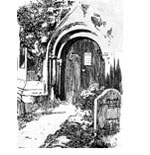
In Danger of Death
GUEST COLUMN
Everything that exists strives to preserve itself in being. This is true of minerals, plants, animals, and man. For a living being to exist is to live; therefore, its most precious possession is life. Most of the activity of living things, like eating and resting, is directed to preserving life and avoiding death, which means non-being and is a form of extinction.
For man, the danger of death is everywhere, at all times. As soon as he is conceived, man is in danger of death, and as long as he lives he will constantly be in danger of death. The reason for this is that man is mortal. Since man is composed of material parts that are necessary for his continued existence, if those parts are separated, he ceases to live. There are many causes or factors, external and internal, that can bring about that separation.
The danger of death follows each person like his shadow, and ultimately it conquers. Man’s limitations are almost unlimited. By the light of natural reason, adult human beings come to the realization that their limited existence is dependent on some infinite power that produced everything we see in this world. The adult has seen plants and animals die, he has seen his family members and others of his fellow men die, so he knows that he too is destined to die. This must be one of the main reasons for the presence of religion in some form among all peoples throughout the history of the world. When man reflects on his mortality, when he suffers hunger, thirst, sickness, or danger, he naturally turns to God, the source of all life, for assistance. The way the dead are buried in different cultures offers an indication that their members believe in some kind of life after death. In some cultures, decedents are provided food and money for the “passage” from this life to the next. The pyramids in Egypt and the burial rites of the pharaohs bear witness to this.
In our society, health care, hospitals, and the medical profession are a large and growing part of the national economy. The purpose of this multibillion-dollar industry is to restore and preserve good health, to cure all forms of disease, to extend life, and to delay death as long as possible. Yet, despite the huge amount of money spent annually on health care, many men and women still die suddenly from heart attack or stroke; others die slowly from cancer, diabetes, Parkinson’s disease, Alzheimer’s disease, emphysema, and other maladies. Hospitals house many people who are suffering intensely and many who are dying. The best medical science cannot delay death for long.
You May Also Enjoy
Feminism in the Service of Exploitation... Fetch Your Pooper-Scooper!... Evangelicals Have "Made It" — Onto the Slippery Slope... Bacterial Roulette
Butterfly, who taught you
Your exotic dance?
Who made your wings melodious?
What makes…
How can the Synod on Synodality be a rebalancing of ecclesial powers? It is, after all, the brainchild of the most powerful of ecclesial figures.

